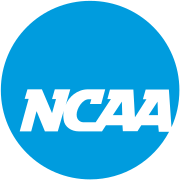
Accountability and the NCAA
Accountability and the NCAA
Posted On: Wednesday, September 5, 2012
Who holds a governing body accountable for clear, consistent, equitable administration of its rules, and when merited, punishment that doesn’t exceed its mission or oversight authority?
 If you are the National Collegiate Athletic Association (NCAA) and can shut down athletic programs, take away scholarships, impose fines, and require consent monitors among other things, accountability is a board of member institutions self-policing. NCAA’s complex governance structure needs a GPS system to navigate.
If you are the National Collegiate Athletic Association (NCAA) and can shut down athletic programs, take away scholarships, impose fines, and require consent monitors among other things, accountability is a board of member institutions self-policing. NCAA’s complex governance structure needs a GPS system to navigate.
Televised college athletic games are a huge business. NCAA says it distributes 96 percent of its $10.8 billion, 14-year agreement with CBS and Turner to the conferences and participating schools.
Increasing public criticism of NCAA ranges from inconsistently applied sanctions, to corruption in college athletics to going beyond its mission and authority in doling out punishment.
The recent crisis at Penn State involving an assistant coach convicted as a pedophile has fueled more criticism of how NCAA does business. Its severe sanctions in August 2012 raised concerns by Pennsylvania’s governor (also a university trustee) and others that NCAA exceeded its mission and oversight.
NCAA does business. Its severe sanctions in August 2012 raised concerns by Pennsylvania’s governor (also a university trustee) and others that NCAA exceeded its mission and oversight.
If, for example, Penn State was bullied by the NCAA into accepting severe sanctions in lieu of having the football program shut down for several years that further erodes trust in how NCAA operates.
In order to move on, August 29, 2012 Penn State University says it agreed to the terms of the NCAA Athletics Integrity Agreement. Within the board of trustees, the faculty and elsewhere, NCAA’s handling of this matter – and the university’s acceptance of it — continue to be a source of contention.
NCAA acknowledged when it announced the sanctions last month that it hadn’t followed its own policy of conducting its own investigation into the areas under its purview at Penn State.
Instead, it accepted the findings of the Freeh Report – an independent investigation commissioned by Penn State to address child sex abuse – which addressed a broad spectrum of issues including university governance, administration, and culture, as well as the protection of children in university facilities. NCAA mandated that every recommendation of the Freeh report be carried out and appointed a monitor to ensure it.
It begs the question of what the appropriate role should be for the NCAA as a governing body when egregious criminal behavior occurs at a member institution that is being addressed appropriately through the criminal justice system?
What should the NCAA’s governance look like as a governance body? What should its leadership look like? Is it as Sports Illustrated suggests, just about winning games or being prevented from winning games?
Where will the push for accountability and commitment to action come from for NCAA to address its own leadership?
Posts by Category
Archive
Most Recent
We recently had Gael O’Brien speak to us at the Network of Enterprising Women and she gave an outstanding talk on ethics in the workplace and how we might meet it head on. I highly recommend listening to her or inviting her to speak at your venue.
